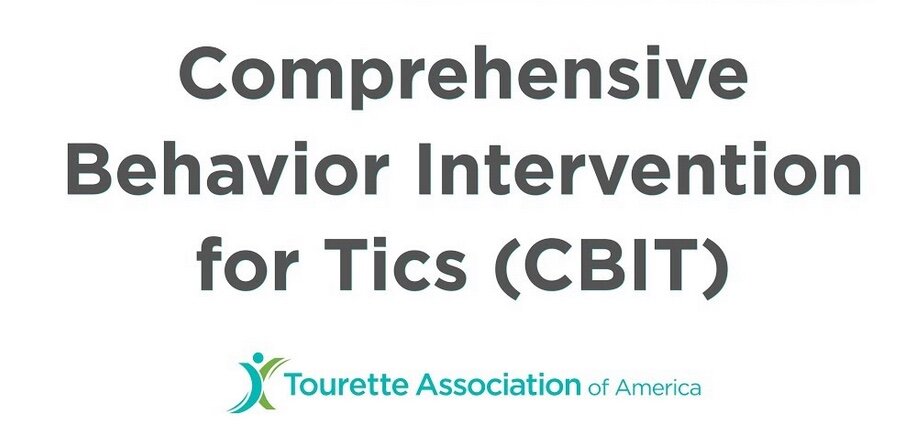Four Takeaways about Tourette CBIT Therapy: The Treating Tourette Together (TTT) Summit
We had the pleasure of sitting down with Heather Simpson, doctor of occupational therapy and CBIT expert, to get her take in the recent Treating Tourette Together Summit.
Who is Heather Simpson?
Dr. Simpson graduated with a B.S. in Exercise and Sport Science with a minor in Early Education from the University of Florida in 2007.
Following her Bachelor’s degree, Heather received a Master’s in Occupational Therapy, in 2009, from the University of Florida.
To complete her education, she obtained her post-professional clinical doctorate from the University of St. Augustine for Health Sciences in 2017.
Dr. Simpson provides occupational therapy evaluations and treatment for at Tourette clinic at the Fixel Institute for Neurological Diseases at the University of Florida. She also evaluates and treats a variety of other movement disorders diagnoses including Parkinson’s, Parkinsonisms, Dystonia, Essential Tremor, Ataxia and Muscular Dystrophy.
She is an expert in sensory Integration training and arousal modulation training.
She is an expert in Comprehensive Behavioral Intervention for Tics (CBIT).
What is CBIT?
According to the Tourette Association of America CBIT is:
A non-drug treatment consisting of three important components:
Training the patient to be more aware of tics
Training patients to do competing behavior when they feel the urge to tic
Making changes to day to day activities in ways that can be helpful in reducing tics.
Four Takeaways from the Treating Tourette Together (TTT) Summit
In August 2019 (Minneapolis, Minnesota) there was a meeting called the "Treating Tourette Together" (TTT) Summit. This event was held over two-days and hosted by the Tourette Association of America and the Patient-Centered Outcomes Research Institute. It was focused on achieving a better understanding of the needs of those living with Tic Disorders (TD).
A diverse group of participants attended including researchers, educators, physicians, occupational therapists, mental health professionals, and also patients. The goal of the TTT Summit was to understand the needs of those with TDs and to generate research ideas for the future treatment of TD.
The TTT collaborators recently released a final report of the Summit results.
One of the most significant conclusions from the event was that participants universally recognized that Comprehensive Behavioral Intervention for Tics (CBIT) was an effective treatment, even with some limitations .
Here are the four takeaways from the Tourette TTT Summit:
1. Access to CBIT certified professionals is limited.
a. There is a need to increase the number of providers and locations where CBIT is offered. To further increase the benefits of CBIT, addressing the access to care, and decreasing wait-list time will be important.
2. CBIT is effective, but has room for improvement.
a. Questions were asked about a possible alteration in the length, frequency, and therapy model to try to improve the outcomes of CBIT. Also, questions were generated about how to increase the success of those who respond less to the CBIT program.
3. CBIT is effective, but isn't the only treatment approach.
a. Due to the complex needs of many people living with TD, often, a variety of treatment approaches are required. Some require behavioral therapy, some might require medication , and some may not require any formal therapy. Questions were asked about the process of CBIT and if there was a better way to utilize CBIT in treatment . For example, would CBIT be more effective in a tiered format?
4. CBIT is effective in treating tics, but can likely be expanded to help with the whole person and not just the tics?
a. Knowing that TD may impact many facets of life, participants recognized that it would be helpful to know if CBIT benefited more than just the tics. For example, does CBIT help with confidence, self-acceptance, and daily living tasks?
Summit leaders pledged to utilize these takeaways, as well as the participants' feedback, to guide the future of behavioral therapy for TD. To stay updated with the latest reports and outcomes of the TTT Summit, check out the TTT website. For more information on CBIT, you can also visit the Tourette Association of America's website.
To read more books and articles by Michael S. Okun MD check Twitter @MichaelOkun and these websites with blogs and information on his books and http://parkinsonsecrets.com/ #EndingPD #ParkinsonPACT #Parkinsonsecrets and https://www.tourettetreatment.com/









